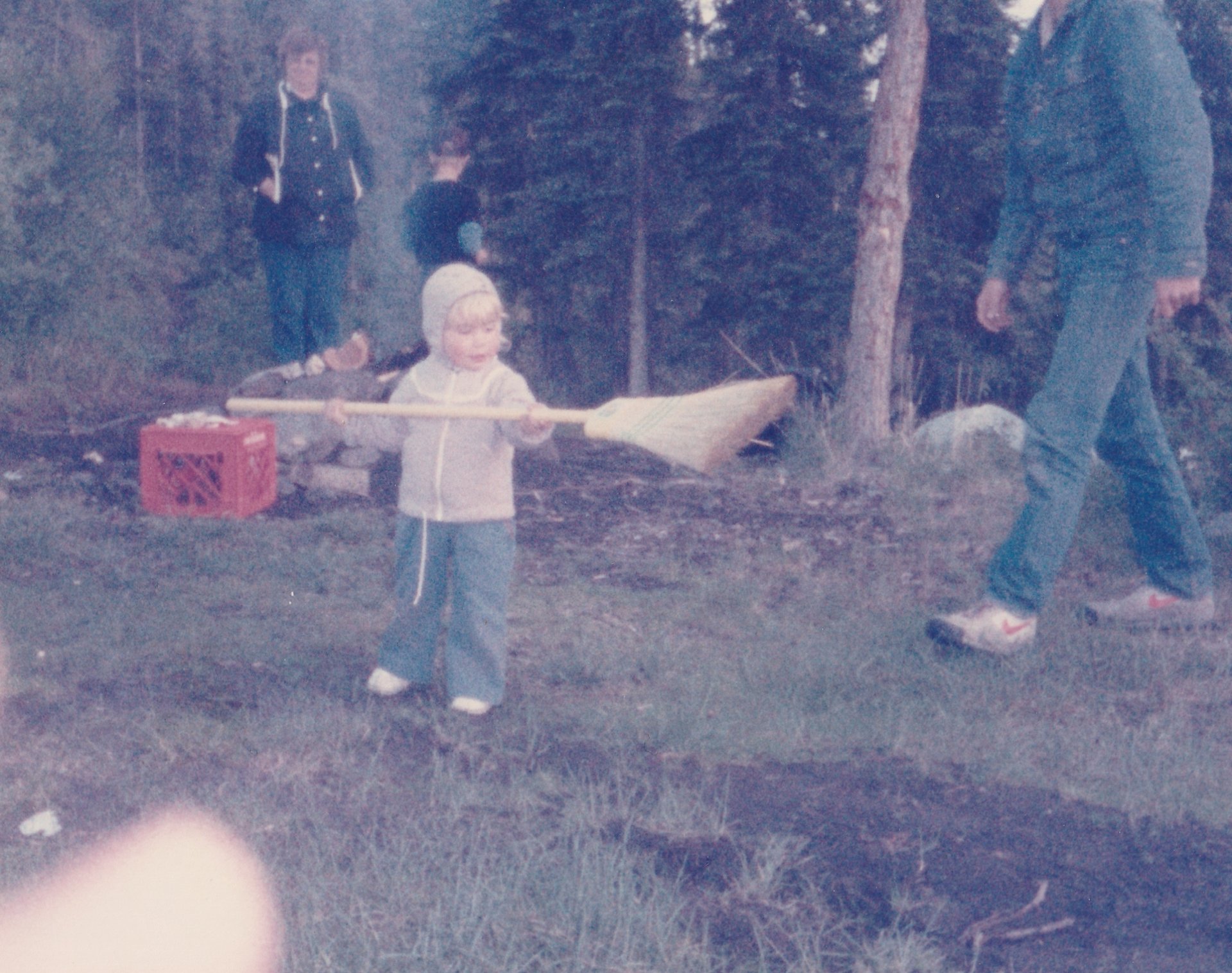The Midwest and the Midnight Sun
Hiraeth
(n., Welsh): a homesickness for a home to which you cannot return.
Wedged somewhere in the back of my memory is a phantom; a tragic little shadow that lingers when it’s quiet and I’m alone in my mind.
Buried under thirty years of passive consciousness, lodged behind decades of distance and time, and darting between relics of memories past, hangs the ghost of a life that no longer exists.
I’ve tried to hush her by numbing, in any way that I could. I’ve tried to live in denial, politely sweeping the broken shards in the corners of my mind under rugs, pretending the poltergeist of an angry, lonely little girl didn’t reside within the walls of my subconscious.
I’ve suffocated her echoes with wine and weed, and prescriptions from well-meaning physicians, only to hear them again in my dreams when I sleep. I’ve stifled her with ignorance and neglect, pretending the pit in my stomach would dissolve with time. I learned to navigate the years by feigning control over when she speaks, and how, and why.
But control has only ever been an illusion.
I’ve found a way to share selected snippets of her stories countless times, over a dozen different ways, in a hundred different situations, in a million different conversations.
I learned at a young age how to pepper cherry-picked tidbits into everyday moments, like conversational trail mix; a knack I picked up from, among others, my mother. Selective disclosure was a way of dulling the pain of years of repression of a very personal, corporeal wilderness. There’s no room, after all, for the untamed in polite conversation.
Strung together and bound in the red thread of time, sunk under the weight of a woman’s responsibility, the spectral elements of my childhood seemed devoid of power. I’d fashioned myself a fantasy that was confining, but comfortable. I’d placed the phantoms of the past on the shelf of my mind, lined up nicely like chapters of a series long forgotten, dust collecting on the bindings.
But grief is a door we’re often shoved through unwillingly, and nothing is ever the same on the other side of death. Unfortunately, that’s usually where the phantoms start screaming.
It’s also where they won’t be silenced.
I write this, too, for others. For the friends who never tire of my stories, and the ones that remind me that my words have weight and value, but I only feel it when I stand in my strength. I write, also, for my children to learn to love the sound of their own voice, and that they may know what to do if they find it silent.
I write for the over-feelers, and the ones that are just a little too much. The ones who attach too easily, who share more than they should. I write for the messy ones, the sloppy-but-loveable ones. The ones who make mistakes wildly and with abandon. The ones who drank too early, fought too readily, loved too fiercely and unabashedly, and survived years with scars and stories to tell.
I write, so that they can see that their too-muchness is a gift. It is a realness denied by many, and understood by few.
But it is powerful and needed, nonetheless.
I write for the lost and lonely little girls relegated to the depths and shadows inside the strong and resilient. For the ones who found their faces pressed against the window of the world too early and saw their lives and themselves age faster from experience.
For the ever-good preacher’s daughters exhausted from a lifetime of being constant and quiet and pleasing. For the feral-natured latchkey kids now adjusting to a new reality of raising children while simultaneously caring for aging parents, in a crumbling economy, under a government determined to imprison a nation for profit.
For the burned-out former gifted students now comfortable but dispassionate about a life of non-performance. For the ones who wore clothes twice their size just to disappear. For the ones who have a pair of grippy socks stashed in a drawer, and a hospital stay they don’t talk about.
For the difficult ones; the bitter and jaded ones, the oh-so-critical ones, and everyone in-between.
I write because writing makes what is true real. And because I was born with a gift and an unquenchable need to share, even if it kills me.
I write to resurrect a life untamed; stunning and isolated, and full of adventure, knowing full well that the horrors and suffering awaken along with it. To pull from the shadows of time the ghosts of those I lost along the way; to feel again for a moment what it was to be wild and lost and full of wonder.
I write to make it all real, again, if only for a moment.
I’ve tortured myself with a million ways to begin her story, and why. In order to silence a ghost, she must first be heard. To be fully heard, she must be allowed to speak unfettered and unchained; she has to be given her agency, her time, her moment to emerge with her voice from the darkness. Even a ghost has needs.
Like a blonde little banshee, her only purpose is to scream her truth, and that has never been allowed.
She calls for me to raise her from the dead. To sing over her bones and write her truth on the sky. I must write, in order to make sense of it, of her and of her loss, to myself.
I have to write the child I was. I need write so that she may read her words, and rest.
I write to share her stories, of the chronicles she kept so meticulously, carefully analyzing and categorizing each experience. The tomes of an Alaskan childhood as rugged and beautiful and exposed as the land itself. I write so that they aren’t forgotten. I must write before I forget them, myself.



